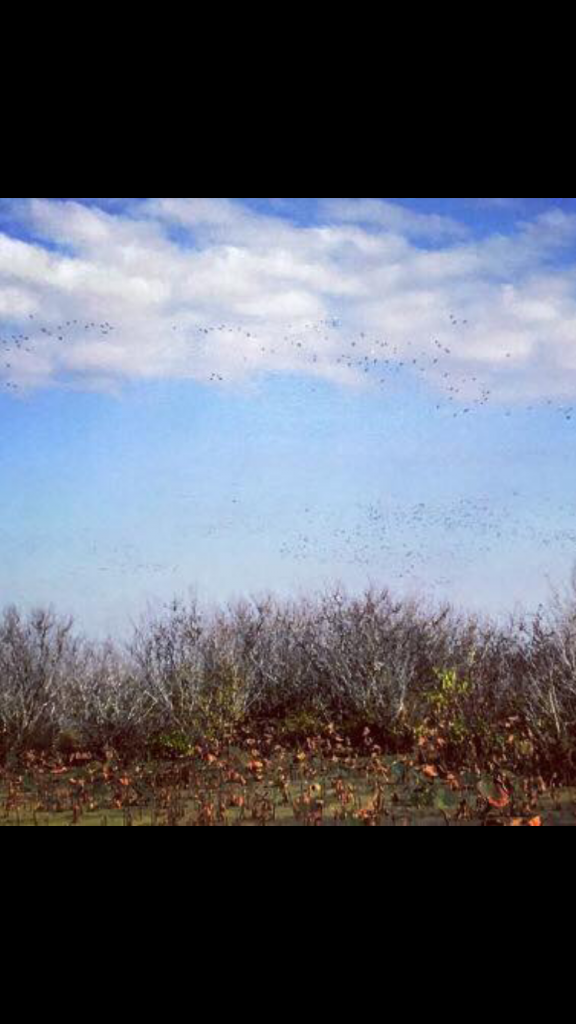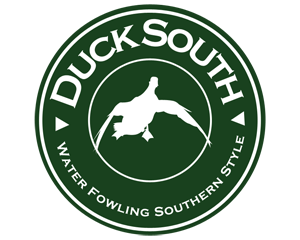I bet you were thinking, “No Rocky, I want to make duck hunting in Mississippi as crappy as possible…. Duh, I want to make it better!”. Next question! Name the wildlife organization that has boots on the ground in the Mississippi Delta working every day to make public and private land better for wildlife? It is not DU or Delta Waterfowl, both are great and deserve support, but the organization I am talking about is Delta Wildlife. I want to ask each and every one of you here at DuckSouth to consider joining Delta Wildlife, because we (Mississippi hunters) have always wanted a local organization working to increase our chances of success while hunting and Delta Wildlife is that organization.
The things that these guys do for Mississippi to make it a awesome place to hunt and fish is unreal. How important would I say joining Delta Wildlife is? On a scale of 1-10, I would say a 10. The benefits for yourself, of joining Delta Wildlife, far outweigh the $45 minimum membership. How do you ask? Here is one example:
- One bag of Round Up Ready corn= $275 at local retail stores
- One bag of Round Up Ready corn= $35 for the same bag at Delta Wildlife
- That creates a savings of $240 for a membership that cost you $45
Don’t even get me started on the pipe program! For years on DuckSouth I have seen people asking, when is DU going to spend some of the millions they raise in Mississippi on property in Mississippi. They do have a few projects here and there, but Delta Wildlife is the organization that does exactly what we have been wanting. 100% of your donations are used to make Mississippi a better place to hunt and fish!
Below is my conversation with Dan Prevost, of Delta Wildlife, talking about the history, mission, and the benefits of members of joining Delta Wildlife.
Tell me a little about Delta Wildlife’s history. When was it founded and who founded it?
Delta Wildlife was formed back in 1990 by a group of 100 farmers and business leaders who owned, managed, or recreated on land in the Mississippi Delta.
Why was Delta Wildlife started? The Delta is different from any other part of the State, and the founders envisioned a non-profit organization that was completely focused on the wildlife and habitats of the region.
What is the Mission Statement of Delta Wildlife? To conserve, enhance, and restore native wildlife habitats, wildlife populations, and the natural resources of the Delta and part-Delta counties of Northwest Mississippi.
Where are your offices located? We are located in Stoneville, which is just north of Leland, MS.
How many people do you employ and what type of jobs do they do every day? Delta Wildlife shares staff with a sister organization called Delta F.A.R.M., which is structured very similar to Delta Wildlife but focuses on the agricultural landscape. Together combined, the organizations have six full-time employees. Our daily tasks vary tremendously, which I enjoy. For example, we conduct site visits and provide recommendations to improve habitat for duck, deer, and turkey. We can create maps for hunting clubs or recreational properties, coordinate the design and implementation of Wetland Reserve Easements between NRCS and landowners, use survey and GIS tools to support flood fight efforts, native warm season grass planting, deer camera survey design and data analysis, and that’s just scratching the surface. The list goes on…
What area does Delta Wildlife cover? The Delta and part-Delta counties of Northwest Mississippi.
How do landowners benefit from joining Delta Wildlife? Our goal is to provide unbiased, science-based information to help landowners achieve their goals. Plus, all of our programs and services are designed to benefit landowners. Take food plots for example. There are hundreds of different seed varieties and mixes available, and every company claims their product is the best. We have nothing to gain by someone choosing one variety over another, so that allows us to make an honest recommendation on the most economical option that will also achieve the landowner’ objectives. We have other services and programs that can help landowners reduce management and infrastructure expenses.
How do non-landowners benefit from joining Delta Wildlife? Anyone that manages land in our operating area can benefit from the programs and services we offer. For example, managing hunters can be just as important as managing habitat. We have helped non-landowners map out access routes and hunt units on leased properties. We can offer suggestions for managing hunting pressure that we have observed working well on other properties. Another thing to consider is that wildlife, especially waterfowl, generally don’t follow property boundaries. So when habitat improvements are made on private lands, it also benefits waterfowl using public lands throughout the region.
Can you talk about a couple of example projects that are helping hunters that may not own land but hunt in the Delta? Here recently we have been working with The Nature Conservancy and others on projects at Mathews Brake and McIntyre Scatters. Mainly we have provided technical assistance to help develop plans for improving water levels and management to ensure these historic waterfowl areas continue to provide quality habitat and hunting opportunities.
Tell me about some of the programs that Delta Wildlife offers and how those benefit its members in a few words? Let’s see; we have a nest box program for wood ducks, bluebirds, prothonotary warbler, and also bat boxes. We have these built by inmates at Parchman, and they are sold to our members for the cost of materials. We provide habitat recommendations through the technical assistance program. As I mentioned before, we produce a lot of property maps through our GIS/Mapping program. Both the habitat recommendations and mapping services are included with a basic membership to Delta Wildlife.
What are some the most common mistakes you see landowners make every day that doesn’t enhance but hurt? Being closed-minded is the biggest mistake I see many landowners make. Those most successful in developing habitat or managing populations are the ones that keep an open mind and are always willing to learn and try new things.
I see you have different events/classes you offer to members. Classes that help members create better habitat on land they lease or own. Can you tell about any future classes being offered or any past classes we just missed? Who was the speaker and what was the class about? All Delta Wildlife members have the opportunity serve on a Committee. We have a Waterfowl Committee, Deer, Turkey Committee, and Fisheries Committee. You get the point. Well, each Committee identifies topics of interest, and we build meetings around that. This past February the Deer and Turkey Committee hosted a meeting where Karl Miller from the University of Georgia discussed fawn predation and Fred Cunningham from the USDA Wildlife Research Center discussed the possibility of using toxicants for feral hog control. Last fall the Fisheries Committee brought in a panel of experts to discuss Asian Carp.
In your opinion, what could be done right away around the delta to make the duck hunting better? Hold more winter water on the landscape and better manage hunting pressure.
Hogs have become an awful problem in the Delta. What are some things you are doing to help get that population under control? We have a hog trapping program where we bring a large coral trap to a member’s property and demonstrate the correct procedure for trapping and removing an entire sounder group. When done correctly, this is the most economical option for reducing feral hog populations.
What does Delta Wildlife offer to its members to help with their pond management? Do you guys help with any public lakes? We provide necessary recommendations for water quality and habitat improvement along with advice for managing aquatic weeds and the fishery itself. Several years back we developed maps for many of the Delta lakes, which are available on our website. We also installed a good bit of structure on those lakes during that same period.
How do you guys help enhance deer habitat? Management recommendations for food plots are one of the most common ways we help landowners enhance the habitat. Outside of that, deer habitat management is forest management. Often we will make a basic assessment of habitat conditions across a property and make general forest management recommendations. We always recommend that landowners follow through with a registered consulting forester, but we will help them articulate their goals and objectives in a manner that is clear and understandable to the forester. This generally results in better results for everyone.
I saved the best two programs for last. Dan, you know the wildlife seed program is one of my favorites. Tell us about the seed program and the benefits. Every year we have a spring and fall seed offering. Seed companies offer us surplus seed at a discounted rate, and we pass these savings along to our membership. All the seed we handle meets germ rates set by the Bureau of Plant Industry. This spring we have Roundup Ready corn and soybeans for $35/bag, Clearfield Sunflowers for $35/bag, and Milo for $15/bag. In the fall, we normally have winter wheat, which went for $7/bag last year.
My other favorite is Wetland Management and Winter Water. Tell us about this program. The core of this program lies in providing advice and guidance for managing wetlands to achieve their full potential. This is something the staff of Delta Wildlife is very passionate about, and it ranks high on our list of “favorite work activities”. This could involve helping establish “grassy corn” or managing moist soil or green timber wetlands. We also have a “pipe program” from time to time where companies donate steel pipe or money to Delta Wildlife, and we turn around and offer steel pipes with flashboard risers to our members free of charge. Most of the time the member is responsible for pickup, installation, and management of the structure. In fact, we just finished a pipe program sponsored by Monsanto where we distributed over 200 pipes that will provide over 6,000 acres of winter water.
These two programs I listed above alone are worth the membership. What does the minimum membership cost? The basic membership is $45 per year and includes a subscription to our quarterly magazine along with access to all the programs and services that we offer.
How do I join today? You can join online at www.deltawildlife.org or by calling the office at 662-686-3370 and request that a membership packet be mailed to your address.




